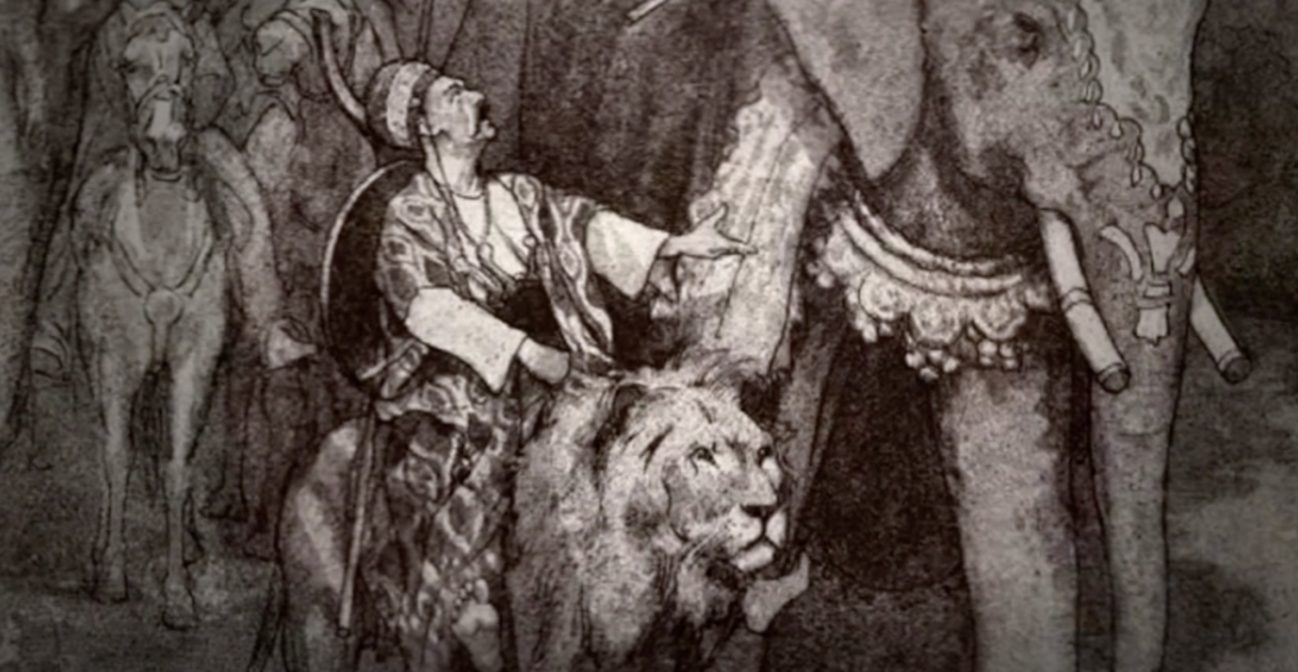Join us for conversations that inspire, recognize, and encourage innovation and best practices in the education profession.
Available on Apple Podcasts, Spotify, Google Podcasts, and more.

An excerpt from The Thousand and One Nights
Shahrazad tells the sultan about Harun al-Rashid
“Shahrazad said, ‘It is related that one night Harun al-Rashid felt himself weighed down by a heavy depression. He said to his lieutenant Jafar, ‘Brother and Wazir, my heart is heavy.’ Jafar replied, ‘O King of Time, all joy and sorrow come from within, but sometimes outside shows may have an influence upon these humors. Have you made trial of any outside shows today?’
“The sultan said, ‘I have taken up in my fingers and let fall all the jewels of my treasury; the rubies, the emeralds, and the sapphires, but not one of them lifted my soul to pleasure. I have been to my harem and passed in review the white and the brown, the copper colored and the dark, but none of them lifted my soul to gladness. I went to my stables, but not one of my countless horses could amuse me, and the veil of the world has not lifted.'”

Mary Zimmerman
“One of the things that Shahrazad does throughout her storytelling is focus on stories on Harun al-Rashid, who is a sort of wonderful, beautiful model of a king. As opposed to the king that she’s telling the stories to, who’s out of his mind.
When Shahrazad tells this story of Harun al-Rashid, she says that Jafar suggests to the sultan that he hear the stories of other people, and that this will cure his depression and take him away from this endless internal fixation. And that’s exactly what King Shahrayar needs. And it’s exactly what Shahrazad is doing for him.”

David Damrosch
The Thousand and One Nights is full of stories about the power of storytelling. Shahrazad is able to cure her king of his murderous grief through her stories, which often (as in this case) slyly present Shahrayar with models of better behavior. At the same time, like any powerful force, storytelling can be death-dealing as well as life-giving. As a recurrent figure in the tales, Haroun is a prime image of the sometimes dangerous lure of stories, as he prowls his city in disguise at night seeking new and more marvelous tales, nearly losing his life as a result of his insatiable curiosity in the tale of “The Porter and the Three Ladies of Baghdad.” When he does succeed in gaining new and wonderful tales, he has them written up in letters of gold, making them into a treasury of jewels more precious than those that have surfeited him. Yet in its fullest versions, the Tales end with a melancholy sequence of storytelling featuring Haroun al-Rashid. In a late story called “The Downfall of Jafar and the Barmakids”—closely based on the historical account of an early historian named al-Tabari—Haroun suddenly and inexplicably orders his executioner Masrur to behead Jafar. When Masrur brings Jafar’s head to him, Haroun spits on it. Everyone at court is horrified, but no one dares to say anything. After some time, Haroun’s favorite sister musters the courage to ask the reason for his shocking destruction of his trusted vizier and friend. “If I thought that my shirt knew the reason,” Haroun grimly replies, “I would tear it in pieces.”
Following al-Tabari, the narrative speculates that Jafar and his clan may have become too rich and powerful; or that vicious rumors—storytelling spinning out of control—may have accused them of indulging in unorthodox behavior; or else—a romantic story that the Nights plays up—Jafar may have had a secret love affair with Haroun’s sister. But at the end, the text says Jafar’s downfall may simply have been fated, for no reason that humans will ever know. The cumulative effect of reading through The Thousand and One Nights greatly deepens the theme of storytelling and the tales’ other recurring themes, revealing new facets of both light and darkness in their jeweled surfaces.